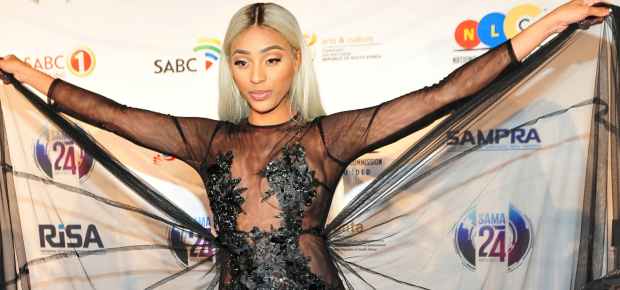In a startling development in the world of Japanese entertainment, Masahiro Nakai, a former member of the iconic pop group SMAP, has found himself embroiled in a scandal that has shaken fans and the media alike. Following serious allegations of sexual misconduct that surfaced in January 2025, Nakai issued a public apology, stating, ‘It is true there was trouble.’ This revelation has sent waves through the television industry and rekindled discussions about celebrity accountability and public trust.
This scandal has not only impacted Nakai’s personal life but also brought forth questions about the culture surrounding idols in Japan. Fans are left questioning their admiration for these pop icons in light of such serious allegations. As we delve deeper, we will explore Nakai’s career, the circumstances surrounding the allegations, and the broader implications for Japanese pop culture.
Masahiro Nakai: A Career Overview
Nakai’s journey in the entertainment industry began in 1988 when he debuted with SMAP, initially formed as a dance and vocal group. Over the years, the group gained immense popularity, becoming a staple in Japanese pop culture. By blending music with acting and variety shows, SMAP redefined the idol culture in Japan, paving the way for future artists.
With hits like ‘Sekai ni Hitotsu Dake no Hana’ and appearances on numerous variety shows, Nakai emerged as a household name. His charisma and talent drew in fans of all ages, and his contributions to the group earned him accolades as one of Japan’s most beloved entertainers. However, in 2016, after nearly three decades of stardom, SMAP disbanded, leading Nakai to pivot his career towards solo projects.
As a solo artist and television host, Nakai continued to maintain relevance, appearing regularly on multiple programs. His ability to connect with audiences was unparalleled, making him a central figure in Japanese media, often described as the ‘face of SMAP.’ Yet, following the recent allegations, many of these projects have faced sudden interruptions.

The Allegations Against Nakai
The scandal came to light when reports surfaced claiming Nakai engaged in nonconsensual sexual activities with a woman in her 20s in June 2023. As the news broke, it prompted an immediate response from media outlets, which started to pull Nakai from ongoing shows. This situation escalated further when it was revealed that a significant settlement of 90 million yen (approximately $569,000) had been reached regarding the allegations.
In his statement, Nakai expressed regret, attributing the incident to his own shortcomings. He affirmed that the situation had been resolved through discussions among representatives but declined to disclose additional details, which raised eyebrows among many.
The impact of these allegations was profound. Major broadcasting networks hurriedly suspended programs featuring Nakai and began editing him out of scenes, signaling a swift retreat from association with the entertainer. The frequency and speed of such decisions reflect the serious nature of the allegations and the perceived damage to Nakai’s reputation. It was not just about one individual; the ramifications extended throughout the organizations involved.
Public and Industry Reaction
The initial shock among fans was palpable. Many took to social media, expressing their disappointment and confusion regarding Nakai’s actions. Given his image as a beloved and charismatic figure, the news starkly contrasted with the persona he had cultivated over decades. Fans shared stories of how Nakai influenced their lives through his music and television performances, now tainted by scandal.
Industry reactions were similarly swift. Television executives and producers faced a dilemma—should they sever ties completely, or reintegrate him once public sentiment cooled? As these discussions ensued, many broadcasters opted for a hardline stance, removing Nakai from broadcasts and taking a zero-tolerance approach to such allegations, a decision that reverberated throughout the entertainment sector.
- Immediate suspensions by networks.
- Social media outrage and public apologies swirling.
- Impact on future opportunities for celebrities accused of misconduct.
The Culture of Celebrity and Scandal in Japan
This incident has opened a broader discussion concerning the culture of idol worship in Japan. Idols are oftentimes held to a pedestal, representing not just entertainment, but a set of cultural norms and ideals. This idolization sometimes conflicts with real-life complexities, leading to a dangerous dichotomy between public personas and personal conduct.
With the rise of social media, public reaction to such controversies is more immediate and intense than ever before. Audiences can voice their opinions instantly, often leading to a rush to judgment without complete context. Fan loyalty is now tested in ways that were previously unimaginable. Takashi, a long-time fan, stated, ‘I feel betrayed by someone I admired for so long. It’s hard to reconcile that image with what I’ve learned.’
Furthermore, this incident reminded everyone of prior scandals within the industry that prompted significant changes in how entertainment companies operate, especially regarding crisis management. For instance, past controversies involving other idols led to structural changes in corporate policies, making it clear that idols are not infallible and must be accountable for their actions.

Comparing Scandals: A Look Back
In viewing Nakai’s situation, it might be helpful to reflect on other notable scandals in Japanese entertainment history that have triggered reform or raised similar outrage. From incidents involving other idol groups to high-profile actors facing serious allegations, the patterns often echo one another.
- The 2012 DPJ Scandal: This scandal involved prominent political figures, showcasing how celebrity influence affects public opinion.
- Rina Sawayama on Mental Health: The pop star spoke openly about her struggles with industry pressures, advocating for change in how idols are treated.
- The Johnny’s Entertainment Allegations: Similar incidents involving male idols have resulted in public outcry, often leading to more stringent measures and discussions surrounding idol conduct.
These events have raised multiple questions: How should the industry react to allegations? What frameworks are in place to support victims? Are the measures robust enough to protect both parties? Each scandal brings to light the pressing need for change within the idol culture, reflecting a societal desire for accountability and transparency.
The Future of Masahiro Nakai and the Idol Industry
As Nakai contemplates his next steps, the industry eagerly watches the unfolding trajectory of his career. Will he be able to regain the trust of the public and return to the screens that once adored him? The question looms large over not just Nakai but also the landscape of Japanese entertainment.
Restoration of his image would require a concerted effort, potentially involving outreach and initiatives aimed at demonstrating accountability and sincerity. As seen with other idols, success in rehabilitation often hinges on public support and willingness to allow redemption.
On a broader scale, the idol industry may need to reassess its approach to managing scandals, offering support systems, and creating environments conducive to healthy accountability. Some have already called for reforms focusing on mental health resources and the importance of consent, calling for a more transparent dialogue surrounding idol conduct.

Lessons Learned
Scandals like Nakai’s serve as reminders of the pressing need for dialogue around consent and celebrity culture. As idols continue to influence society, the expectations placed upon them must be met with real responsibilities. It’s crucial for both fans and the industry to recognize the importance of accountability, not only in terms of public image but also for the safety and well-being of all parties involved.
The conversation surrounding Nakai will undoubtedly continue, evolving as fans respond and the media reports new developments. Each reaction serves as a reflective lens on society’s values regarding fame, trust, and the sometimes blurry lines between admiration and expectation. As we navigate this complex landscape, the celebrity idol culture in Japan stands at a crossroads, determining its path forward.
Source: english.kyodonews.net
Hi, I’m Sarah, a 30-year-old journalist with a passion for storytelling and uncovering the truth. I strive to bring important issues to light and connect with my audience through compelling narratives.



